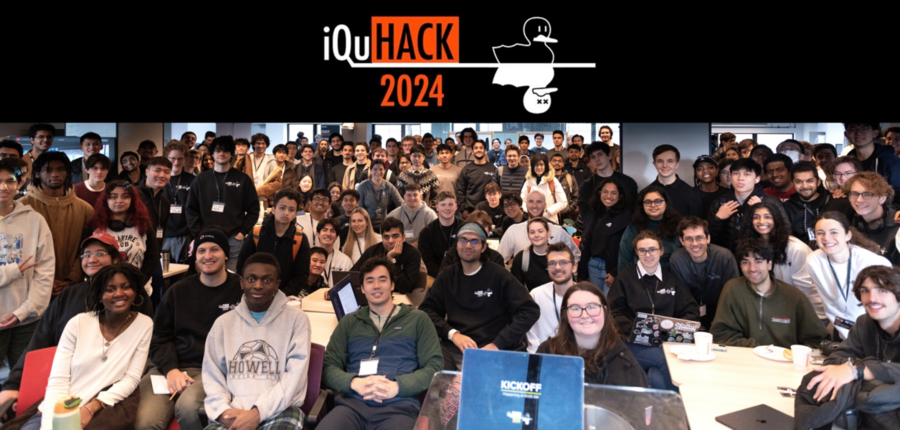
Quantum computing is the next step in creating faster and more powerful computing technologies. It can improve route optimization for shipping and delivery, speed up battery development for electric vehicles, and predict trends in financial markets more accurately. However, to achieve this quantum future, scientists and engineers must solve existing technical challenges and keep exploring new applications.
One place where they are working towards this future is the MIT Interdisciplinary Quantum Hackathon, or iQuHACK for short (pronounced “i-quack,” like a duck). Each year, a community of quhackers (quantum hackers) gathers at iQuHACK to work on quantum computing projects using real quantum computers and simulators. This year, the hackathon was held both in-person at MIT and online over three days in February.
Quhackers worked in teams to enhance the capabilities of quantum computers and explore promising applications. They tackled a wide range of projects, such as running a quantum-powered dating service, building an organ donor matching app, and breaking into quantum vaults. While working, quhackers could consult with scientists and engineers from sponsoring companies who were present. Many sponsors also received feedback and ideas from quhackers to help improve their quantum platforms..
Organizing iQuHACK 2024 was a big task. Co-chairs Alessandro Buzzi and Daniela Zaidenberg led a team of nine members to host the largest iQuHACK yet. "It wouldn’t have been possible without them," Buzzi said. The hackathon welcomed 260 in-person quhackers and 1,000 remote quhackers from 77 countries. More than 20 scientists and engineers from sponsoring companies attended in person as mentors for the quhackers.
Each team of quhackers worked on one of 10 challenges set by the hackathon’s eight major sponsoring companies. Some challenges asked quhackers to boost computing performance by making quantum algorithms faster and more accurate. Other challenges encouraged quhackers to explore using quantum computing in fields like finance and machine learning. The sponsors collaborated with the iQuHACK committee to create engaging challenges with industry relevance and societal impact. "We wanted people to tackle an interesting challenge with real-world applications," says Zaidenberg.
